Africa is the world’s darkest continent. It’s also where light pollution is growing fastest, but for now, it offers some of the finest destinations on the planet for amateur astronomers.There are typically three reasons why amateur astronomers find themselves stargazing in Africa.
The first is on a safari in Kenya, Tanzania, Botswana or South Africa, where dark skies are often an unexpected bonus to keep your binoculars busy after a day’s wildlife viewing.
The geography, climate, and existence of limited infrastructure provide an ideal environment for astronomy.
Terance Fife, Chairman of the Joint Management Board of the !Ae!Hai Kalahari Heritage Park.
The second is while on a trip to the Sahara Desert – a dark sky zone often on Moroccan tour itineraries – and the third is Namibia, a destination increasingly visited for the Namib Desert’s dark skies and growing infrastructure for amateur astronomers.
Just make sure you visit during the May to October dry season (though check for specific destinations).
What can Africa offer stargazers?
A lack of light pollution in remote areas is why Africa is worth considering as a dark sky destination, though as much of an attraction should be the sights of the southern hemisphere night sky.
From everywhere in Africa (though most easily from countries south of the equator such as Namibia, Botswana and South Africa) you can see sights including the Jewel Box Cluster (NGC 4755), the Southern Cross (Crux), Southern Pleiades (IC 2602), Coalsack Nebula, Eta Carinae Nebula, and the incredible Omega Centauri (NGC 5139) and 47 Tucanae (NGC 104) globular clusters.
You can also see the Milky Way’s brighter centre and the Large and Small Magellanic Cloud dwarf galaxies of the Milky Way, which makes Africa an excellent place for astrophotography.
Find out what you can see in the Southern Hemisphere night sky tonight
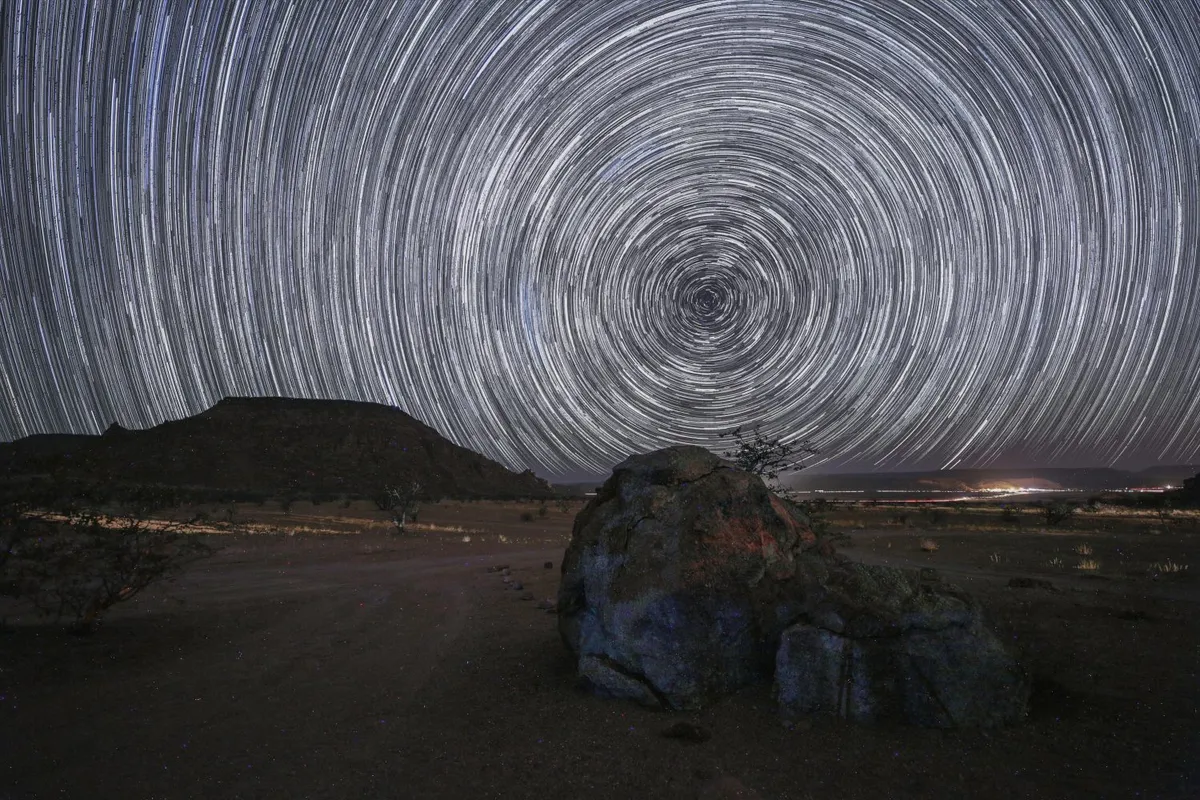
Africa’s amateur astronomy scene
It’s small, but growing.
As well as an astronomy-centric hotel in Morocco’s dry Draa Valley, there’s an International Dark Sky Reserve in Africa – NamibRand Nature Reserve in Namibia (though sadly no accommodation aside from an uber-luxury camp) – as well as !Ae!Hai Kalahari Heritage Park, straddling South Africa and Botswana and an International Dark Sky Sanctuary only since April 2019.
Dark skies are often an unexpected bonus to keep your binoculars busy after a day’s wildlife viewing.
There are also a few observatories: the South African Astronomical Observatory (SAAO), Southern African Large Telescope (SALT) and, soon, the Square Kilometre Array (SKA) radio telescope in South Africa, as well as the High Energy Stereoscopic System (HESS) in Namibia, around which you’ll find a few some stargazing activities and a few ‘guest ranches' set-up for amateur astronomers.
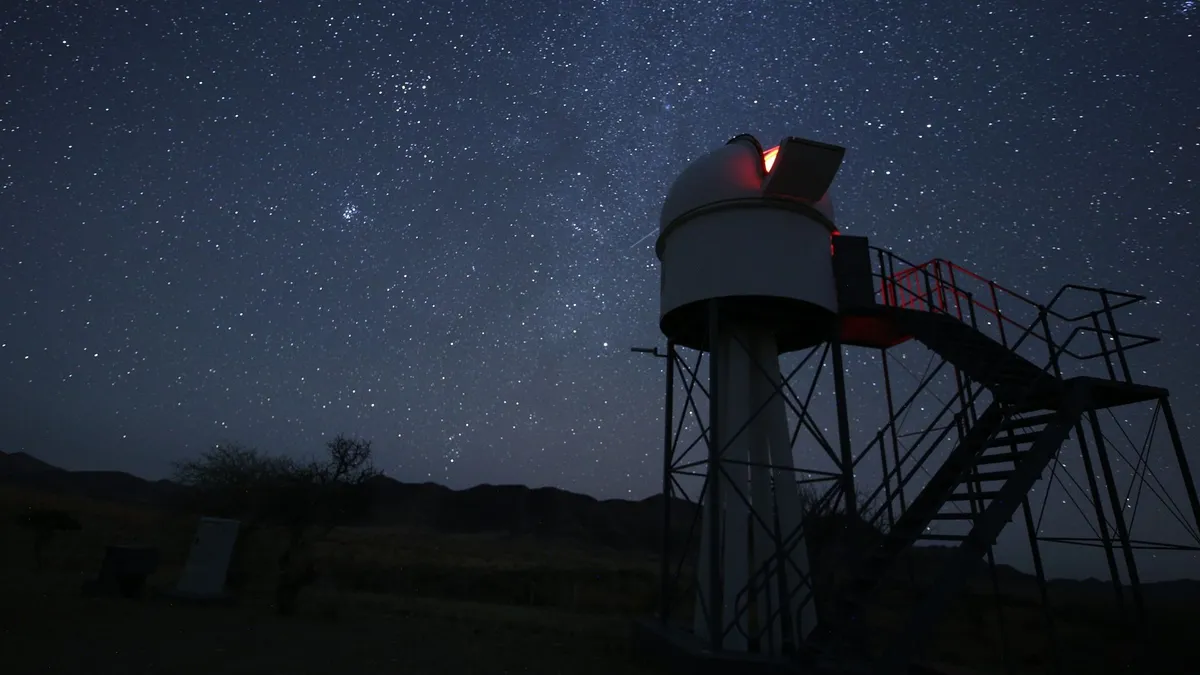
“Astro-tourism has been identified as a particular growth area within the Northern Cape Province, South Africa where the geography, climate, and existence of limited infrastructure provide an ideal environment for astronomy,” says Terance Fife, Chairman of the Joint Management Board of the !Ae!Hai Kalahari Heritage Park.
“Seen in the context of an existing astro-tourism industry around the SALT observatory in Sutherland, and the projected growth in astro-tourism as a result of the development of the SKA around Carnarvon, the Northern Cape Province is already the country’s premier astro-tourism destination.
Wherever you head in Africa you’ll get a completely different experience, but if you choose wisely, plenty of dark nights and breathtaking celestial sights.
Five places to do astronomy in Africa
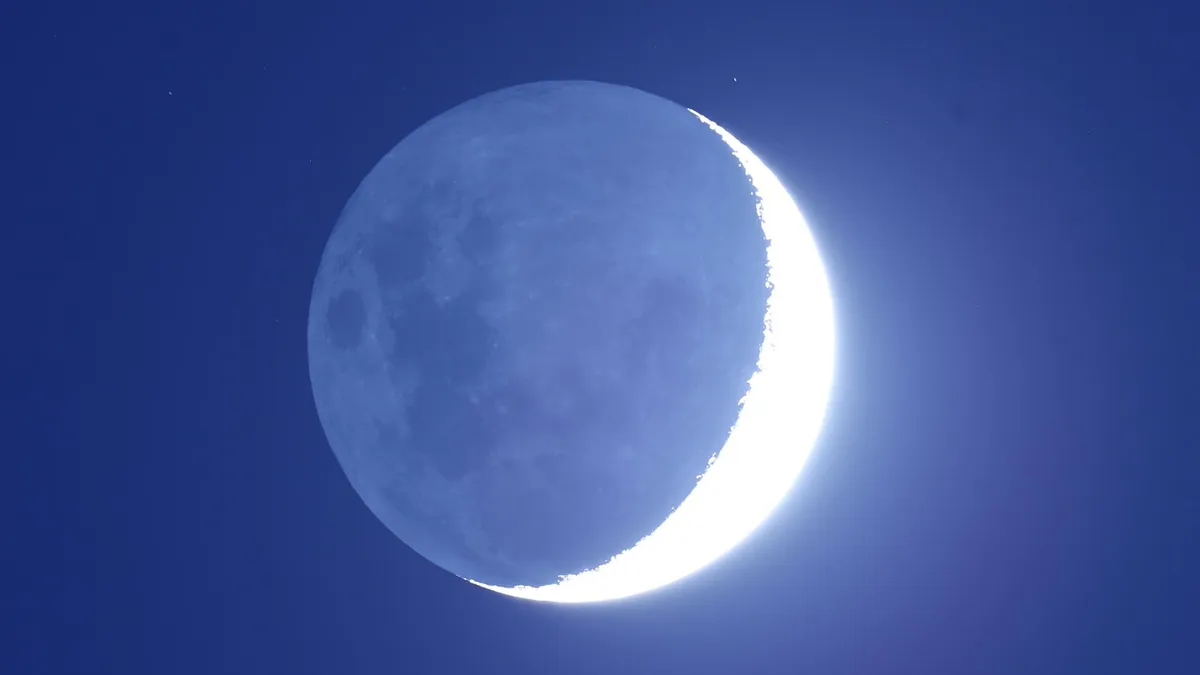
1
Rooisand Desert Ranch, Namibia
A few hours’ drive north of popular tourism site Sossusvlei is Rooisand, a private ranch near the Gamsberg Nature Reserve that is a delight for anyone into the night sky.
Almost bang-on the Tropic of Capricorn, the owners conduct guided tours or let you get on with your own astronomy or astrophotography using the resident 430mm/17-inch PlaneWave Astrograph.
It’s Southern Africa’s biggest amateur telescope.
You can camp, stay at the beautiful farmhouse, or rent-out a luxury chalet right next to the remote observatory.
Nearby is the astronomy-centric Hakos Guest Farm and H.E.S.S.
2
!Xaus Lodge, Botswana
!Ae!Hai Kalahari Heritage Park’s successful application for International Dark Sky Sanctuary status was championed by !Xaus Lodge, the only place with permanent lighting in the !Ae!Hai Kalahari Heritage Park.
Part of the 38,000-sq km Kgalagadi Transfrontier Park on the border between South Africa and Botswana,!Xaus Lodge has retrofitted all outside lights to be night sky-friendly, and offers stargazing to its guests. It also has telescopes.
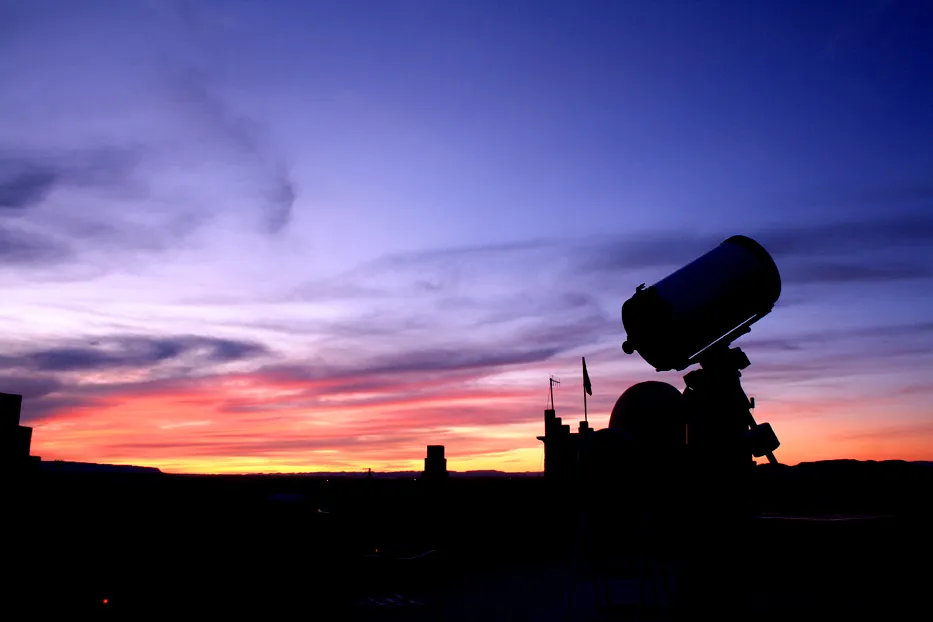
3
Hotel SaharaSky, Morocco
The Sahara desert does good dark skies.
So good, in fact, that this dedicated astronomy hotel is now hosting telescopes for remote control.
However, if you want to see the sky with your own eyes from the Draa Valley, the Kasbah-style Hotel SaharaSky has a rooftop observatory equipped with various Schmidt-Cassegrain and Ritchey-Chretien telescopes up to 400mm/16 inches in aperture, as well as Takahashi and William apochromatic refractors for astrophotography.
4
Tivoli Southern Sky AstroFarm, Namibia
What’s an ‘astro-farm’?It’s your dream destination.
On an isolated sheep-farm in the Kalahari Desert 180 km southeast of the capital Windhoek, the only guests allowed are astronomers.
Here on top of the Tropic of Capricorn there are eight dedicated observatory domes, you can rent Dobsonian telescopes up to a colossal 25-inch aperture, and all manner of accessories.
Another astro-farm nearby to check-out is Kiripotib AstroFarm while Bagatelle Kalahari Game Ranch to the south does more basic stargazing tours.
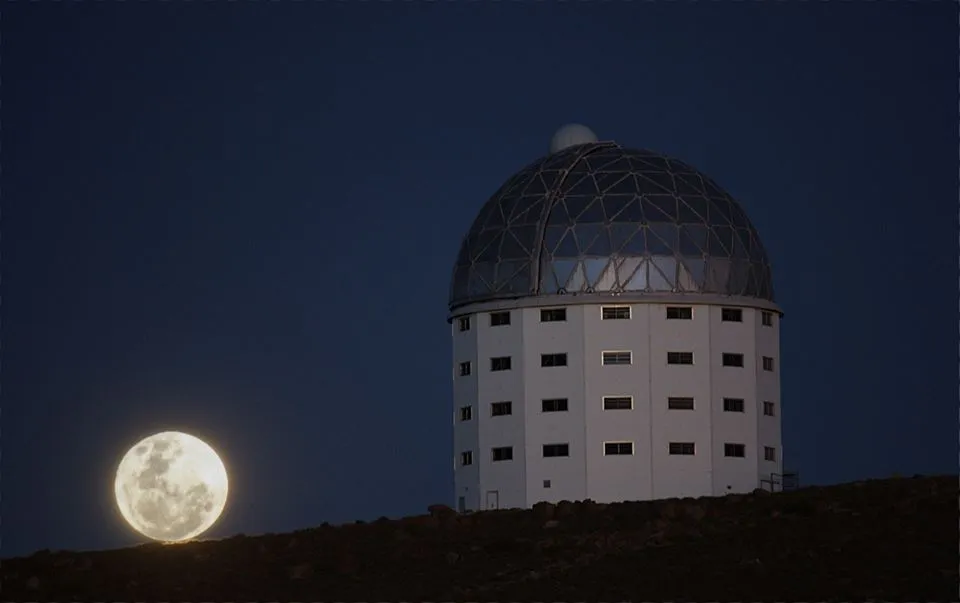
5
SALT Observatory, South Africa
Stay anywhere in the town of Sutherland and you’ll be able to access the night tours at SALT Observatory just 15 minutes drive away.
As well as getting the opportunity to see exactly how the largest optical telescope in the southern hemisphere works, visitors get the chance to look through a 16-inch Meade and 14-inch Celestron telescopes.Just book far ahead.
Accommodation options includes the Rooikloof Guest Farm, Blue Moon Guest House and Starry Night … you get the idea.
